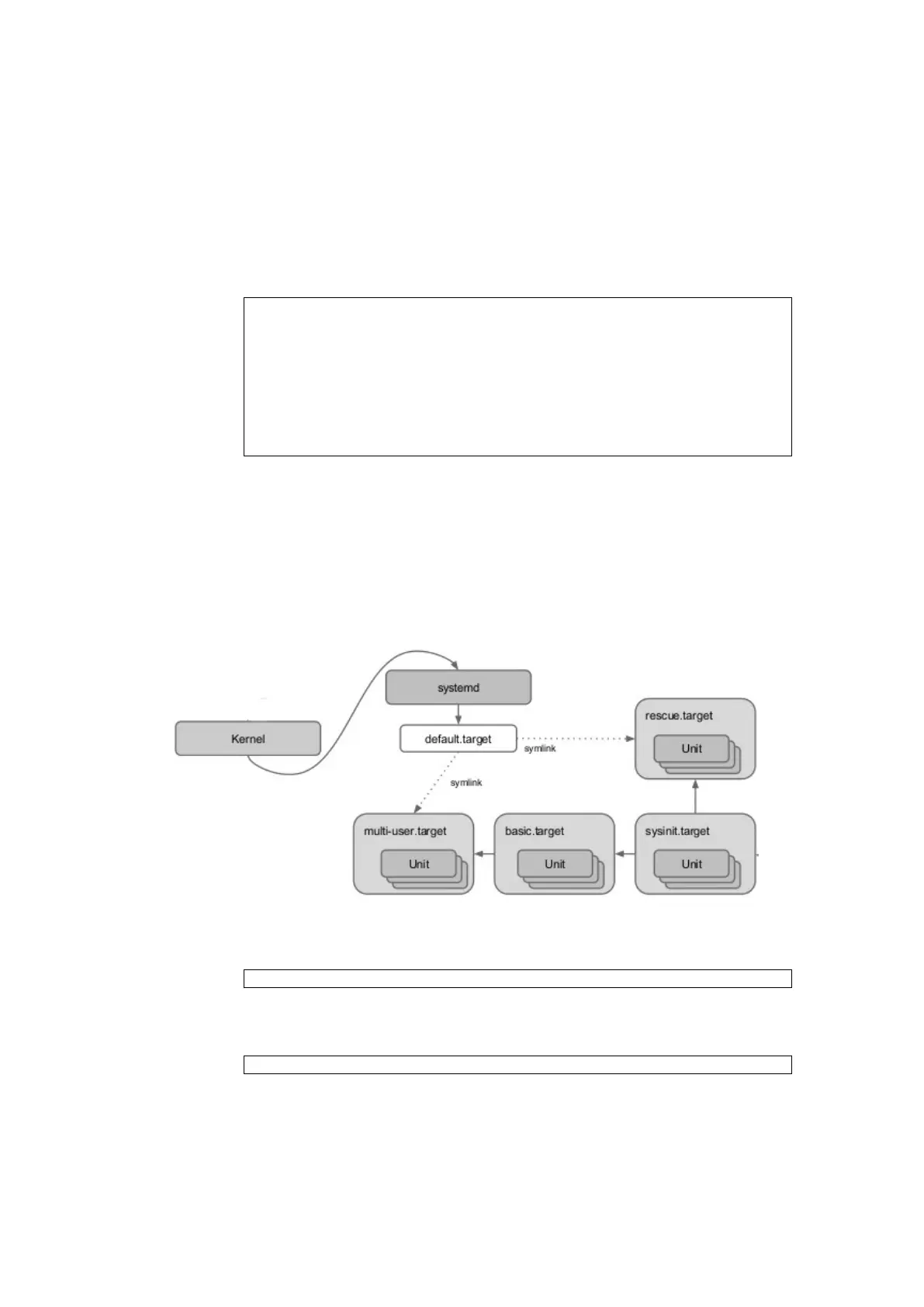%&'"()*+,,-,,.".
, ';')'$
,
Systemd (ref 59) is currently the default init system for Debian and, therefore,
for owa4x.
systemd also serves as service manager, whose tasks are organized as units,
and systemctl is the main tool used to control the state of systemd.
systemctl list-units # List all units and their current status
systemctl stop unit_name # Deactivate one or more units
systemctl start unit_name # Activate one or more units
systemctl restart unit_name # Stop and then start one or more units
systemctl reload unit_name # Asks units to reload their configuration
systemctl status unit_name # Show status information about units
systemctl show unit_name # Show configuration properties of units
, +
In the owa4x, systemd uses the /etc/systemd/system/default.target
configuration file to determine which state, into which it should boot. The
default.target file is a symbolic link to the true target file. In particular, the default
target in the owa4x is multi-user.target which is like runlevel 3 in SystemV. For
example, the multi-user.target unit starts other essential system services, such
as, networking, D-Bus or systemd-timesyncd.
For instance, an user can switch to single user mode by typing the following
command:
systemctl isolate runlevel1.target
And to stop a serial console:
systemctl stop serial-getty@ttyO4.service
, 86
systemd provides users an easy interface to configure services. These services
are described by a .service file, called unit, whose syntax uses key-value pairs
grouped between [section] headers. Unit files are stored under
/lib/systemd/system/ and /etc/systemd/system/.
0,
